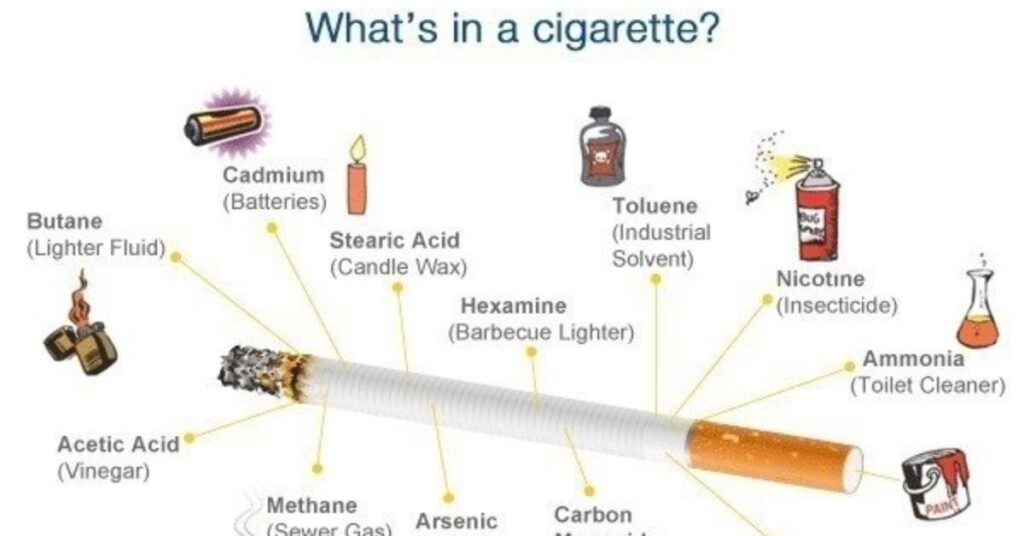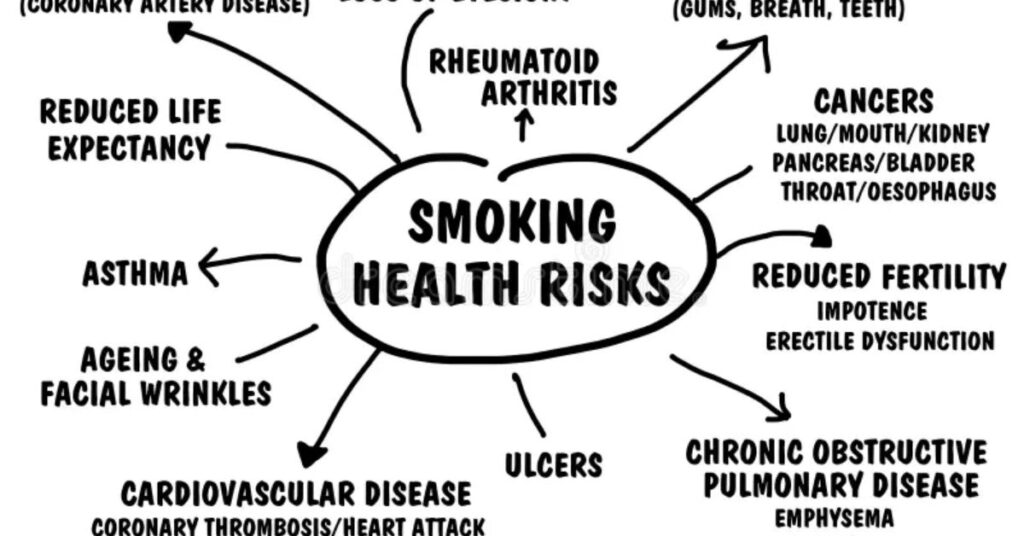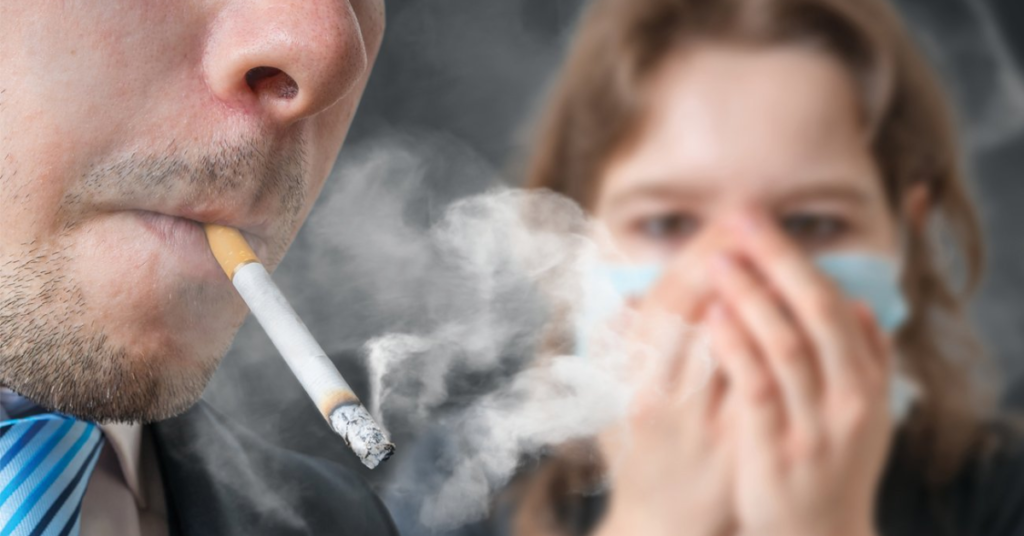Smoking causes preventable deaths worldwide, and hundreds of thousands die every year in the USA due to smoking. It has been a part of history, and now it has got health hazards. While most people start smoking in their teens, it is the attitude toward addiction that makes them persistent to long-term harm.
The habit is the nicotine symptom that cannot be avoided, so thus impossible to stop the habit. Cigarettes contain so much harmful, cancer-causing chemicals in that tobacco that run in the body after sometimes, not only the smoker but also all other common men are exposed to second-hand smoke exposure.
Dangerous Chemicals in Tobacco Smoke

Among the very harmful chemicals, cigarette tar damages the lung tissue, and carbon monoxide leads to various health effects through lowering oxygen blood levels. These chemicals and other harmful substances cause organ damage and facilitate aging.
There are over 70 chemical compounds in tobacco that can cause cancer. Among them are arsenic and benzene. They are associated with diseases brought about by tobacco, such as lung cancer and chronic obstructive pulmonary disease (COPD). Lighting up, also exposes smokers and those surrounding them to these toxicities.
Effects of Smoking on the Body
There are innumerable effects from smoking, nearly all of which are organ-specific. It causes severe injuries to the lungs resulting in respiratory disorders like emphysema and chronic bronchitis due to smoking. It reduces, if not completely bypasses, the immune system effects of smoking making the body weaker in fighting infections.
In addition, tobacco use predisposes a person to a loss in bone density which will then predispose him to fracture. It has longer skin aging, loss of teeth, and much poorer endurance. Quitting might get some of these back but usually they are very long-lasting effects.
Common Effects of Smoking on the Body
| System | Effects |
| Respiratory | COPD, emphysema, chronic bronchitis |
| Circulatory | Atherosclerosis, stroke risk |
| Musculoskeletal | Reduced bone density |
| Immune | Increased infections |
You may also read this blog: HOW TO Boost Your Immune System Naturally
Specific Health Effects of Smoking
Developmental deficiencies occur through exposure to tobacco in wombs and the true complexity that smoking induces in pregnant women on their unborn babies. Smoking leads to severe problems in the unborn baby, for instance, premature birth, birth defects, risks of cleft lip and palate in babies, and much more. All these cannot be left unnoticed as they will result in future problems for the child.
Smoking has specific effects on health resulting in significant deterioration in quality of life. Smoking heart disease is one such disease that is a major killer of smokers, as it carries more chances of attacks, blood clots, and atherosclerosis due to smoking.
Diseases Caused by Long-Term Smoking

The long-term effects of smoking are coupled with many diseases that could result in death. Among the worst effects is COPD and even risk factors for emphysema: irreversible damage to the lungs. Smokers are also prone to cancers affecting the lungs, liver, and stomach, among others.
Vitamin C deficiency in smokers impairs their self-repair capability and therefore results in greater wound healing costs. Furthermore, smoking renders an individual predisposed to stroke due to cigarette usage, especially in the combination of other unhealthy lifestyle habits like poor diet and lack of exercise.
Secondary Effects of Smoking
Not just the smoker himself, but smoking has a serious impact on others too. It predisposes babies to heart disease, respiratory infections, and Sudden Unexpected Death in Infancy (SUDI). Non-smokers who breathe tobacco smoke are equally at risk of developing ill health symptoms similar to those found in smokers.
Smoking also burdens the family financially. By looking at the cost of cigarettes with the medical bills for tobacco-related diseases, they burden the household as a whole. Lastly, society will indeed use its resources to treat diseases related to smoking.
Reducing the Effects of Smoking

One of the best ways is to quit smoking altogether. There are several other support systems like quit smoking support groups or even nicotine replacement therapies, which can help the process, but most ex-smokers report moving on from smoking with a huge relief from its effects on health.
A more active lifestyle combined with healthy food has also reversed some of the long-term effects of smoking because governments and health organizations continue to raise awareness on the dangers of smoking through campaigns and regulations on tobacco products.
Steps to Reduce Smoking Effects
| Action | Benefit |
| Quit smoking | Lowers risk of heart disease and cancer |
| Avoid second-hand smoke | Protects non-smokers from harm |
| Use nicotine replacement | Eases withdrawal symptoms |
Statistical Insights
Statistics show the harsh realities of smoking. According to CDC, smoking kills nearly 480,000 people a year in the USA. Up to 16 million Americans now live with diseases resulting from smoking, like COPD or heart disease.
It is an economic burden exceeding $300 billion in healthcare costs for smoking-related diseases yearly. From this, one can understand the preventive measures and public awareness campaigns smoking is supposed to have in combating the addiction and its consequences.
FAQs
Does quitting smoking really stop its side effects?
The damage may reverse in some cases, but forever in others such as lung damage.
What are the side effects of exposure to secondhand smoke?
Non-smokers can have their own heart and lung problems, due to secondhand smoke.
How does smoking affect pregnancy?
It raises the risk of premature birth, higher chances of birth defects, and low birth weight.
So what is the best cure for quitting smoking?
Nicotine replacement therapy, support groups, and lifestyle modification help.
Conclusion
The effects of smoking on smokers, as well as on non-smokers, is a very far-reaching one; effects of addiction to tobacco and other health conditions or risks. Indeed, it can be devastated by the very individual and the public. Quitting becomes difficult; however, it is worth the pain.
It is important to bring everyone on board in the collective fight to reduce smoking rates: governments, health care providers, and the general public. Through education and assistance, there is hope for healthier future generations.







